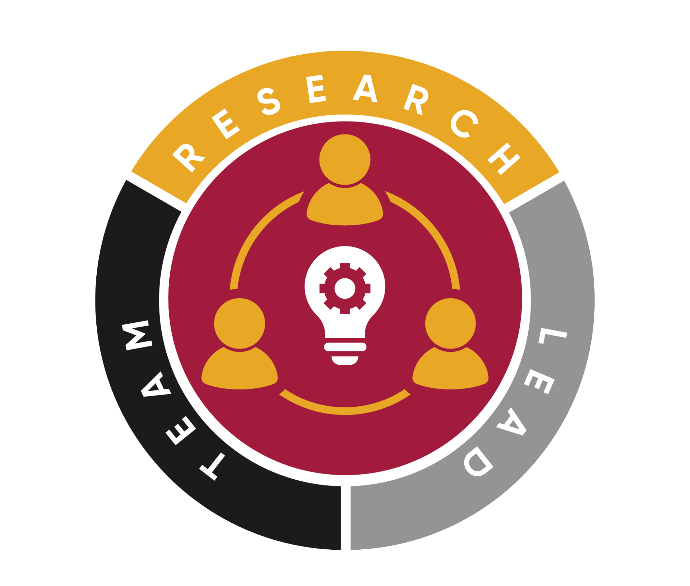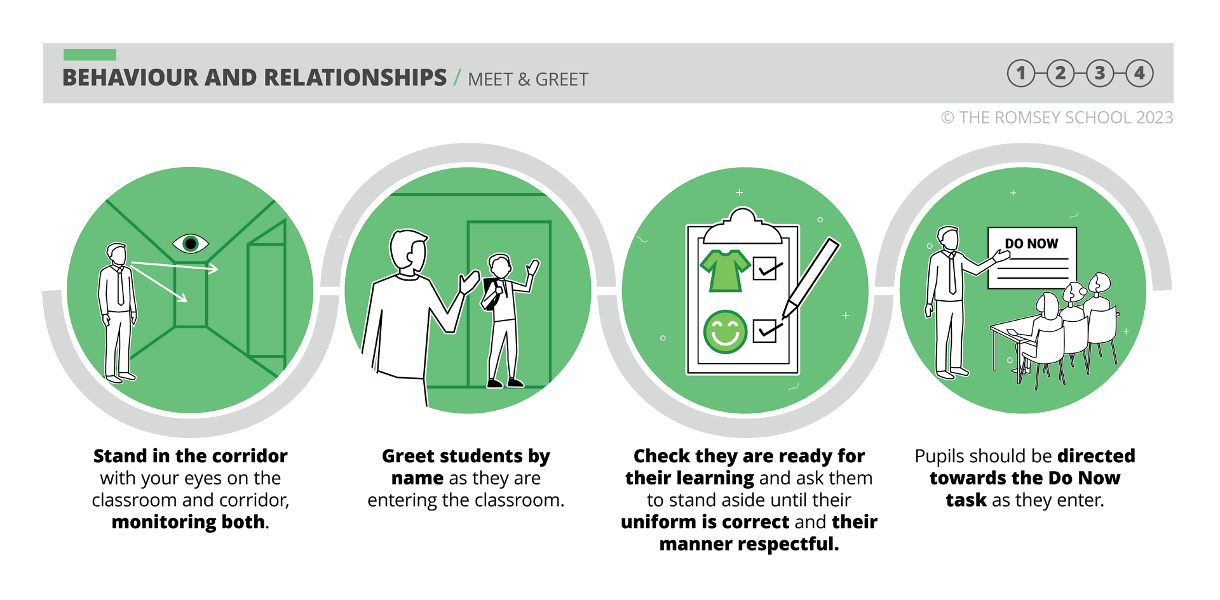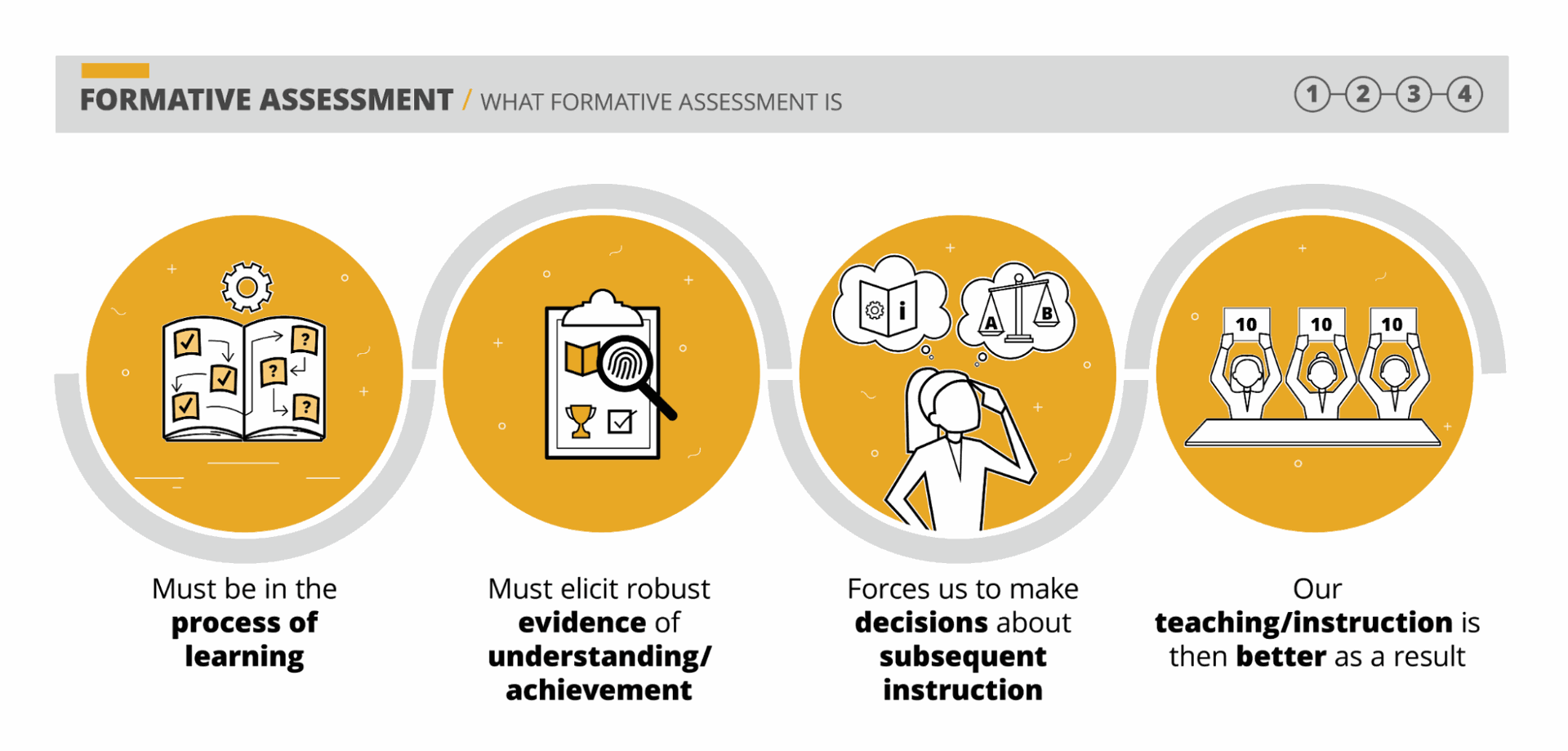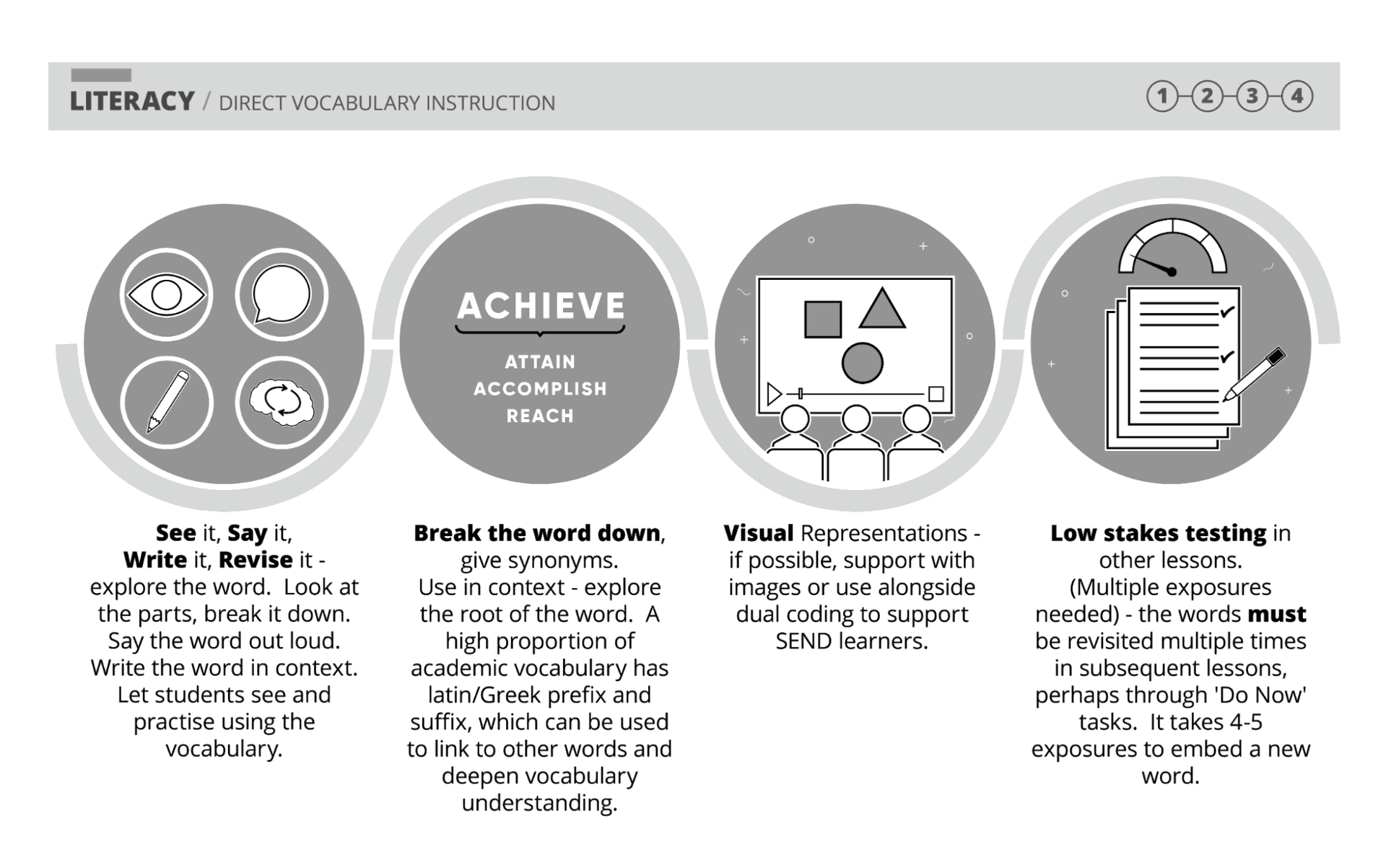Teaching & Learning

“Delivering high impact lessons in which all students work really hard and make exceptional progress”
At The Romsey School we prioritise our Teaching and Learning, aspiring to be the best teachers we can possibly be. We proactively engage with research, use coaching to improve our craft, and have a dedicated Research Lead Team to lead professional development, alongside our Curriculum Leaders whose core purpose is to optimise the learning and teaching for their subject. Every element of our professional development is designed to maximise learning in the classroom, and to push our student learning to ensure that they aspire: “developing confidence, ambition and a desire to go further than others think is possible.”
We ensure that we meet all the Teaching Standards (Part 1 & 2) and we optimise our practice within The Romsey School “six areas of focus” as outlined below:

With that baseline achieved, each member of the teaching team then spends the year focusing on further improving one area of teaching and learning, developing effective habits, and improving the implementation of that technique. We focus on “improving, not proving”.
Whilst teaching, all teachers ask themselves these questions which elicit further reflection for improvement:
- What are they all learning?
- Are they all thinking hard?
- How do I know they understand?
The following descriptions show our aspirations for the classroom. Within the six focus areas we use a variety of techniques, outlined in our ‘Active Ingredients’. These ‘Active Ingredients’ are research based principles and guide our teachers in maximising learning in lessons. Please note that teachers focus on one area to develop over the year, so may not be using all of the techniques listed currently.
Behaviour and Relationships
Our teachers believe in managing behaviour through high expectations, believing that our young people can achieve, and building strong working relationships with our students - to ensure that they develop the confidence to excel. We expect all of our young people to work hard in each lesson. At The Romsey School, students working hard includes:
All students thinking deeply
All talk is about the learning
No learning time wasted
Good attitudes to learning and behaviour are recognised and rewarded regularly and in a variety of different ways from personalised verbal feedback to achievement points, and/or large scale reward events. We also ensure all students are actively involved in thinking deeply through our questioning techniques. This ensures our youngsters build their confidence and that they feel cared for and included within the learning process. Poor behaviour or attitudes to learning will have consequences that are delivered kindly and in a restorative fashion with clear paths for improvement agreed with pupils.
Our rules are simple - we expect our students to be ready, to be respectful and to be safe in every aspect of their school life:
- Be Ready
- Be Safe
- Be Respectful
This creates a calm environment in the school where students are engaged throughout their lessons and learning opportunities are maximised. All lessons start with a Meet & Greet activity whilst teachers check pupils are ready for learning. This includes a ‘Do Now Task’ so students are learning from the moment they enter the classroom. Teachers encourage focus throughout the lesson by ensuring engaging teaching, use of time-limits to ensure challenge, deployment of ‘behaviour drivebys’ and ensuring that they follow our classroom support plan should it be required. Teachers dismiss pupils in a calm and respectful manner using a process known as “End and Send”.

Curriculum Planning
Our teachers are specialists in their field and are experts at structuring knowledge to share with our students. We follow the National Curriculum for most subjects at Key Stage Three, and GCSEs and other courses for Key Stage Four. In addition to this, we aim to create a lived experience of ‘Compassionate Excellence’ which results in young people who are inspired, confident and fulfilled. We do this through implementing The Romsey School’s core values of Aspire, Care and Include and our eight core knowledge, skills and experiences throughout the curriculum. More detail on these can be found within our curriculum intentions document. As a result, students leave our school ready to rise to the challenges of their future.
The curriculum is planned in a way in which subject areas design a knowledge-rich curriculum that is not tightly-defined. Concepts are sequenced in small steps. Coherent mapping takes place to spiral the curriculum with connections both horizontally and vertically, so that students’ learning is developed over time. Our curriculum is set upon high expectations with a culture of reading embedded into the curriculum so that it builds learners towards independence.
Explaining & Modelling
At The Romsey School, our teachers are expert in their subjects and are skillful in how they present and explain new information. Using recommendations from the work of Professor Barak Rosenshine, teachers at The Romsey School introduce new material in small steps, understanding that processing new information can be challenging and working memory is limited. New information is supported with dual coding - a process of combining words and visuals to improve the chances of learning being stored in the long term memory. They provide models and worked examples to showcase what exceptional work looks like and how to get there. To check understanding, teachers support explanations and modelling with questioning and formative assessment, allowing them to adapt their explanation/model to provide more clarity. Teachers also follow up models with scaffolds and guidance for students to create their own exceptional work, slowly removing them when a topic is on its way to becoming mastered.
Questioning & Feedback
At The Romsey School we believe that every student should benefit from high quality questioning and precise feedback. Feedback can be both written or verbal. Students at The Romsey School are given opportunities to receive and act on feedback given to them by their teachers, during lesson time. Marking from teachers is timely and involves students being accountable for improvements, and encourages them to produce their best work. Feedback can be both formative, which means during the learning, or summative, which means at the end of learning. Both will result in students understanding where they currently are within their learning, and what they need to do to progress.
Questioning at The Romsey School includes all students and uses a number of strategies such as ‘cold calling’ or ‘hinge questions’. These strategies are designed to encourage every student to think deeply, to build confidence in every student to answer questions, and to help develop learning through the engagement of questioning. In order to gather a deeper understanding of students' learning, teachers involve all students, and they respond to the needs of the students as a result.

Retrieval & Practice
The Romsey School understands the importance of work around cognitive science and the ‘Science of Learning’. Teachers understand the limited capacity of working memory and the role that prior knowledge has on learning new information/skills. Teachers use ‘Do Now’ tasks and retrieval practice strategies regularly to recall and review learnt information over time. To support the learning of new information, teachers use dual coding to support text with meaningful images, allowing understanding and storage of that topic. Curriculums are sequenced to build upon previous knowledge where possible and allows past information to naturally be revisited when it links to new content. Lessons skillfully include times of practice where students are both guided to create exceptional work, and then given independence to create it themselves, whilst achieving a high success rate. These moments of practice involve tasks or questions that ensure students are thinking extremely hard in order to have a better chance of being committed to their long term memory (D.T. Willingham).
Literacy
We believe that Literacy is central to teaching and learning and should be made explicit in every lesson. Teachers deliberately and frequently develop student vocabulary through direct instruction. Subject specific and tier 2 vocabulary learned by students are revisited often through low stakes testing and links made across the curriculum made explicit if appropriate. Teachers model and expect high standards of oracy from students should repeat responses if not in a well formed sentence using correct terminology. Pupils have a chance to read challenging texts across the curriculum. Teachers support this through direct vocabulary instruction, chunking the text and using dual coding where appropriate to support learners. Pupils have access to a well stocked library and the school environment supports a reading culture where pupils are encouraged to read beyond subject exam specifications. Pupils have the chance to do extended writing often and teachers model the specific disciplinary literacy demands of each task. Punctuation and spelling mistakes are highlighted and corrected where appropriate.

How do we apply our T&L developments to each subject
We use Subject Planning and Development Sessions (SPDS) throughout the year to develop teaching and learning within a curriculum area. These are driven by Curriculum Leaders and apply and embed teaching and learning techniques into lessons.
At The Romsey School all teachers are learners, constantly seeking to improve our practice and sharing ideas to ensure optimum provision for our youngsters.




